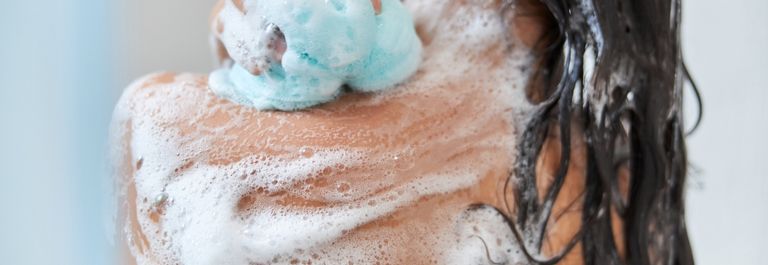Are you struggling to soothe your irritated, dry, maybe weeping and itchy eczema flare-ups? Eczema is a chronic skin condition that’s associated with a damaged skin barrier that has trouble retaining moisture.
One way eczema sufferers have tried to soothe and coat these flare-ups over the years is through the use of petroleum jelly.
This thick, waxy substance is said to help lock in moisture and can even feel like a protective layer on the skin. While this is true, there are potentially dangerous side effects to this jelly. Luckily, there are much safer and more natural ways available to moisturize your skin and give you relief.
In this post, we’ll explore the use of petroleum jelly on eczema, including:
- What is petroleum jelly and the risks associated with it?
- Natural alternatives to petroleum jelly
- Tips and tools to soothe your skin
Read on to learn more about petroleum jelly on eczema and safer alternatives for caring for your skin.
What is Petroleum Jelly?
Petroleum jelly has been used to help heal wounds and dry skin for over a century. It is a mixture of mineral oils and waxes that forms a jelly-like substance. The main ingredient, petroleum, is what aids in healing with a water-protective barrier that seals your skin and helps it to retain moisture.
Vaseline is the most common brand name, containing 100% petroleum jelly, but you’ll also find this ingredient in many other common moisturizers, conditioners, lip balms, baby care, and beauty products.
Petroleum Jelly and Eczema
If you’ve ever used petroleum jelly on eczema or dry skin, you’re not alone! There are many good reasons why people have turned to petroleum jelly for eczema treatment over the years.
One reason is to prevent eczema flare-ups by keeping the skin moisturized thanks to petroleum jelly’s emollient properties. It is also usually well tolerated on sensitive skin and easily accessible at most local drugstores at an affordable price.
However, the overuse of petroleum jelly is known to have very harmful risks.
Risks of Petroleum Jelly
As a natural skincare company, we do not promote the use of petroleum jelly. There is a known risk of contamination from polycyclic aromatic hydrocarbons (PAHs), cancer-causing chemicals found in crude oil and its by-products.
This is especially prevalent in unrefined petroleum jelly that may be found in less regulated skincare products.
Natural Alternative Products to Soothe Eczema
The good news is, there are many safer alternatives to soothe your eczema that will give you the relief you are looking for! A couple of soothing eczema cream products we recommend are:
Organic Manuka Skin Soothing Cream
A creamy, non-sticky, non-burning, non-greasy balm made with just 6 ingredients, all handpicked because of their known soothing ingredients. This nourishing oil-based balm can be used anywhere on the body from head to toe and will leave your skin feeling extra hydrated.
Grass Fed Tallow Balm (Paleo Skin Care)
Very moisturizing and nourishing, this unscented balm is perfect for those with sensitive skin with a variety of issues. Beef tallow cream works for skin soothing and itchy skin relief naturally, coupled with lavender working as an antiseptic to promote healing and prevent scarring.
Further Tips
To reap the benefits of these products even more, we recommend combining them with both wet and dry wrapping treatments. These super-effective treatments are easy to do at home with eczema-friendly fabrics like those by Remedywear™.
Start Soothing your Eczema Naturally Today
Use this information and these helpful tips to start healing your eczema safely while getting the relief you deserve.

Bio: Kazandra is a contributor and content developer for The Eczema Company with a flair for creative storytelling rooted in strategy. Her comments, suggestions, and reflections are not intended to replace any medical advice. Always seek the help of a medical professional before undertaking any diet or lifestyle changes.



